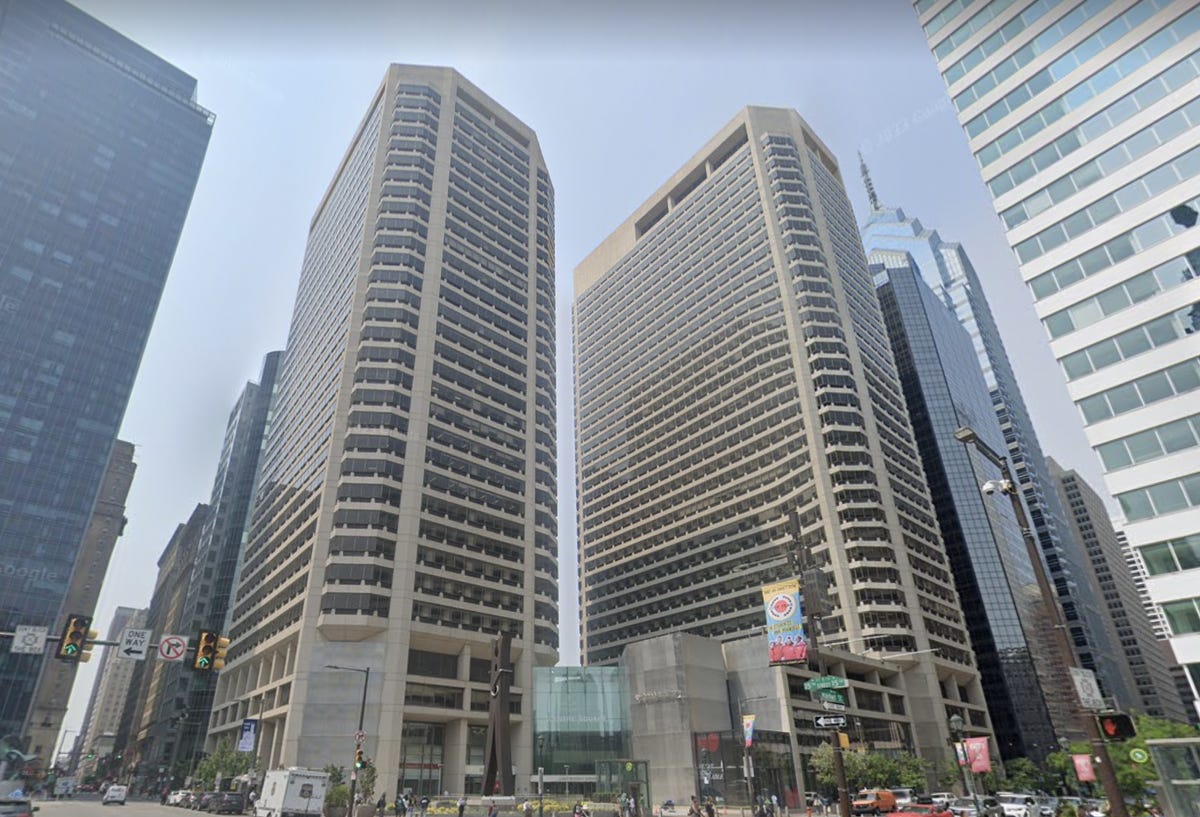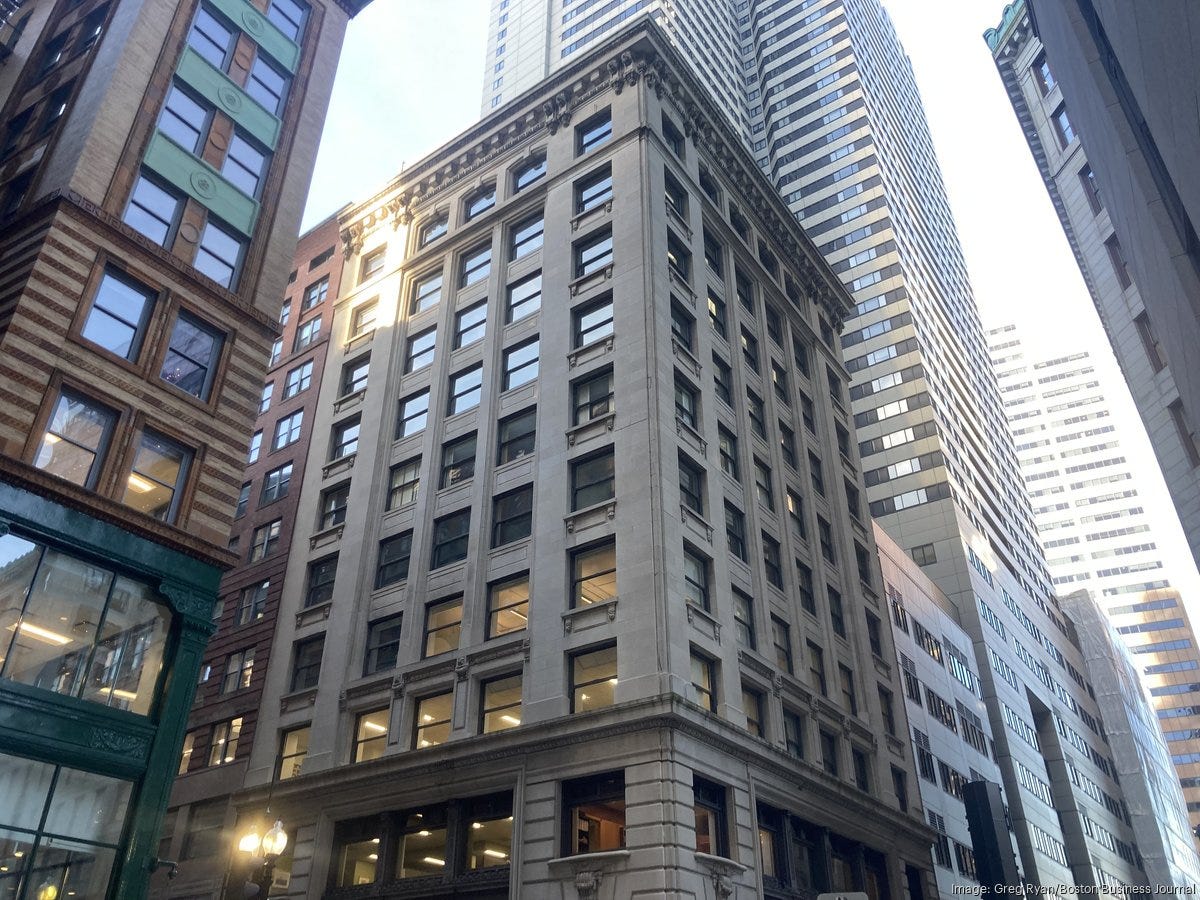Should Cities Buy Office Buildings?
Cities shouldn't miss out on low prices for office buildings
Welcome back to The New Urban Order — where urbanists discuss the future of cities. You can read the archive of content here and signal your interest in this story by hitting the ❤️ button. If you’ve been reading this newsletter for a while, enjoy the writing and ideas, and want to support this work, it would be awesome if you’d upgrade to paid here — these columns are only possible due to supporters like you! Thank you to everyone (and particularly those upgraded subscribers)! 🙏
The money is finally pouring in. After years of concern over the fate of office buildings, there’s been significant investment momentum since the start of the year and experienced investors are now preparing to snap up distressed real estate. I’ve counted at least three different $1 billion funds that have been launched in 2024 so far. Late last month, The Wall Street Journal reported:
Reven Office REIT, a mortgage real estate investment trust, is seeking $100 million from a lead investor and $900 million through a “blind pool” initial public offering.
Commercial Observer noted:
On Jan. 22, RXR’s Scott Rechler, together with Ares Management (ARES), announced a plan to launch a $1 billion fund devoted to investing in or acquiring underwater capital stacks of office properties, particularly those in the upper quartile, Class A section of the market. Three days later, SL Green’s Marc Holliday divulged during a first-quarter earnings call that his firm intends to launch a $1 billion debt fund devoted to investment opportunities in distressed New York City real estate, namely office.
Smart investors see what is happening in American downtowns four years out from the onset of the pandemic—the business fundamentals of cities like New York, Boston, or Houston are relatively stable and could even dramatically improve. Why not buy?
As Commercial Observer put it:
By all accounts, the dust over the beleaguered asset class has finally settled, the blood has largely been drained out of the worst buildings, others have been surrendered, and the top voices in the industry are shouting that it’s safe to jump into the water.
But now that there’s a business case to be made buying discounted real estate, it’s a good moment to ask: Are local governments playing their cards right?
Cities have been eager to find ways to make purchasing and converting office buildings attractive. Boston is offering PILOTS (payments in lieu of taxes) for office conversions. San Francisco is voting this March on eliminating the transfer tax on office building purchases meant for residential conversion. D.C. is readying a 20-year tax abatement on office-to-residential conversion. And the federal government has also provided guidance on all the resources it offers, including low-interest loans and grants, to support office conversions.
But it’s starting to feel a bit like 2008 all over again. Developers are capturing all the upside of the distress while cities seem desperate to pave the way for investor success with little thought about how they, too, could benefit from a market rebound.
After the Great Financial Crisis, government investment in distressed housing was “too little, too late, too timid,” according to Dan Immergluck’s oft-cited analysis, which categorizes the response as “moving too slowly in some cases and being too captive to the policy preferences of the financial services industry.” Cities could have bought thousands more foreclosed properties in 2008, reducing the downsides of foreclosed properties and capturing a set of housing they could preserve as affordable, but instead they stood on the sidelines as those properties were bought up by savvy investors, then flipped or rented out at higher than previous rates.
As commercial properties fall into foreclosure in 2024, cities could take steps to better shape the city they want in the future by actually investing in those properties themselves.
Last week the Philadelphia Inquirer published a piece in which it lists the city’s three emptiest buildings, one of which is a historic Wanamaker’s department store (the place where Mannequin was filmed!) with more than 1 million square feet. Now valued at $50 million, the building is in receivership. I couldn’t help but think: the City should buy this one!

It wouldn't be the first time that a major city has bought up distressed office buildings for their own. Below the paywall, I’ll explore examples from Houston, Phoenix, Atlanta and smaller cities like Wilmington, N.C. and Des Moines where local governments are buying office buildings to pursue housing, public health, placemaking, and administrative goals.






